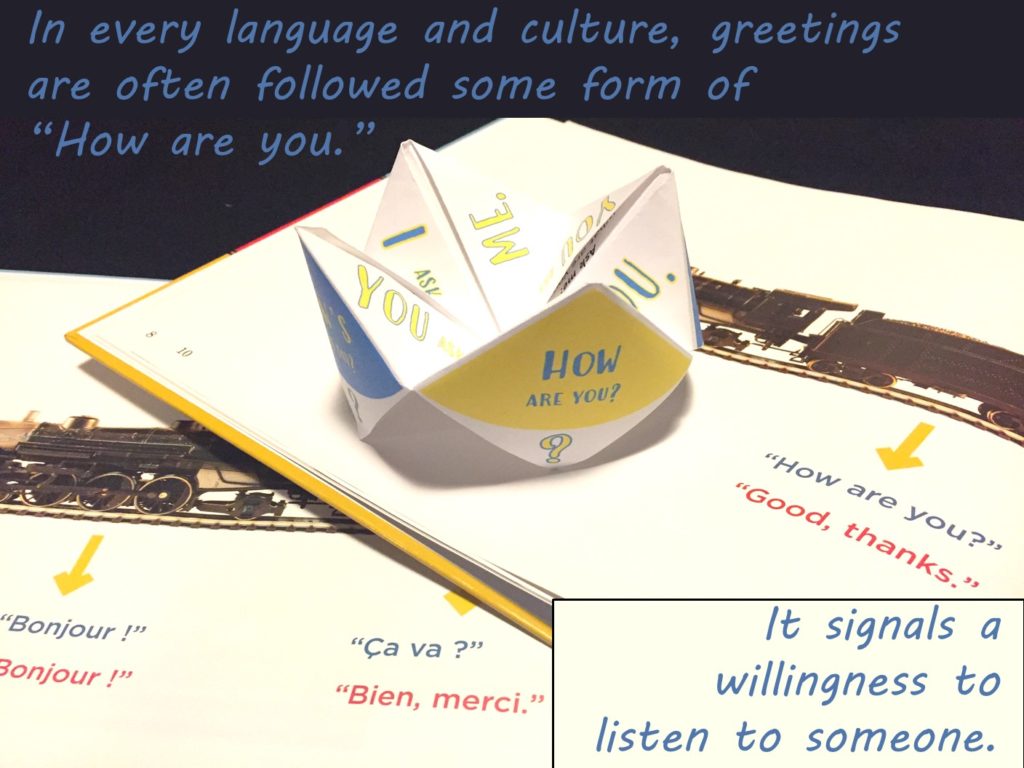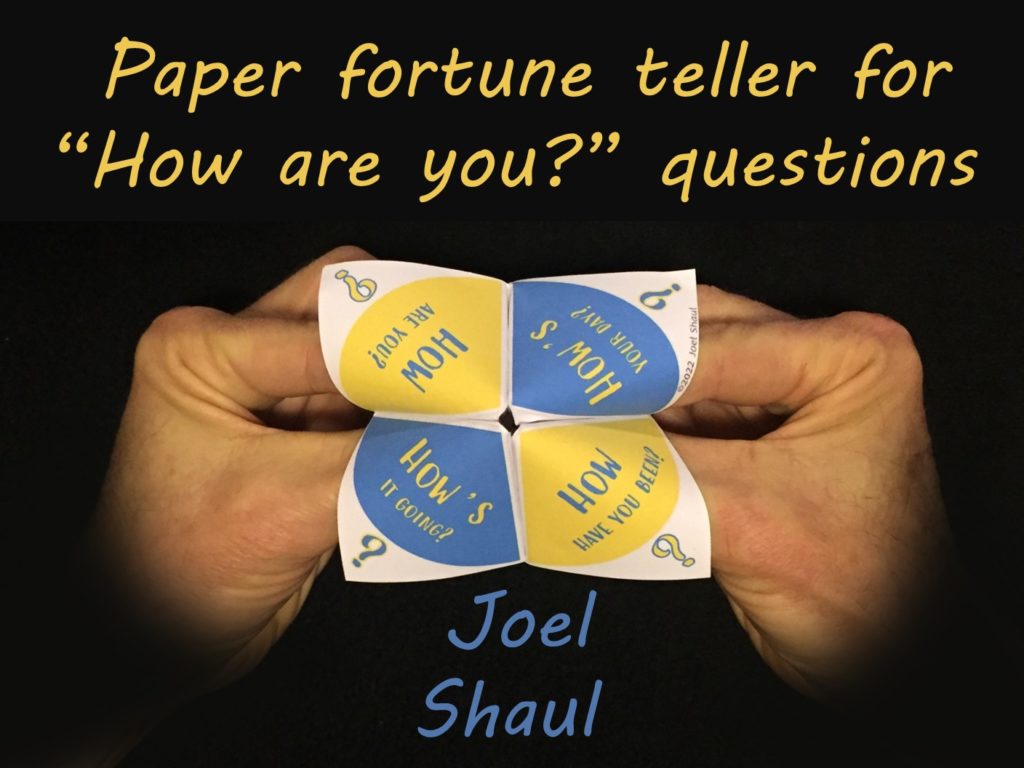
[This is page 10 of the English and French versions of my book, The Conversation Train.]
Young people with autism and “How are you?” questions
When people with ASD are asked open-ended questions like “How are you doing?”, “What’s up?” or “How’s it going?”, they often can’t figure out just what it is the other person wants to know. Also, individuals with autism might be inexperienced at employing various quick, formulaic replies like “Fine, thanks” or “I’m doing okay. You?”
When people with autism are expected to ask other people “How are you?” or “How’s it going?”, many just avoid saying it altogether. There are several reasons for this. First, the unfolding of a conversation containing “How are you?” can be very unpredictable in length and in content. Asking a person how they are doing often elicits a lot of information that someone with ASD may feel unprepared to take in. Second, a person on the autism spectrum might not grasp the imperative of reciprocity in conversation, so when someone asks them “How are you?” they don’t end up asking the same thing in reply.
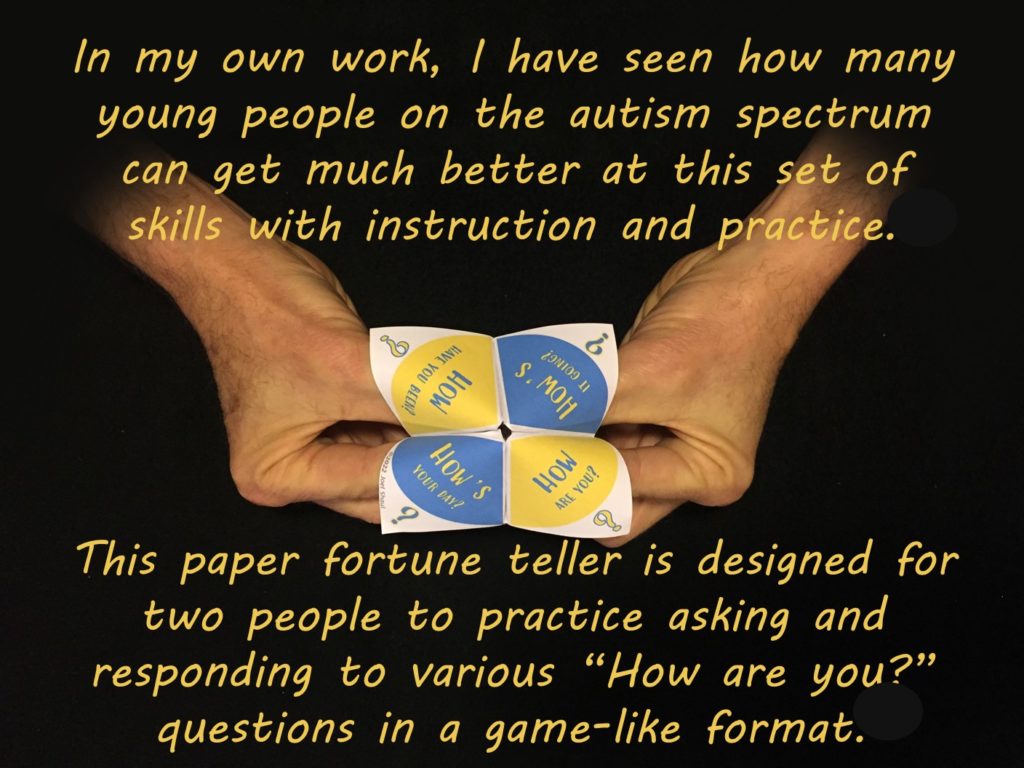
There are many other conversation-based paper fortune tellers on the website to practice other elements of social communication. I also show how to fold them.
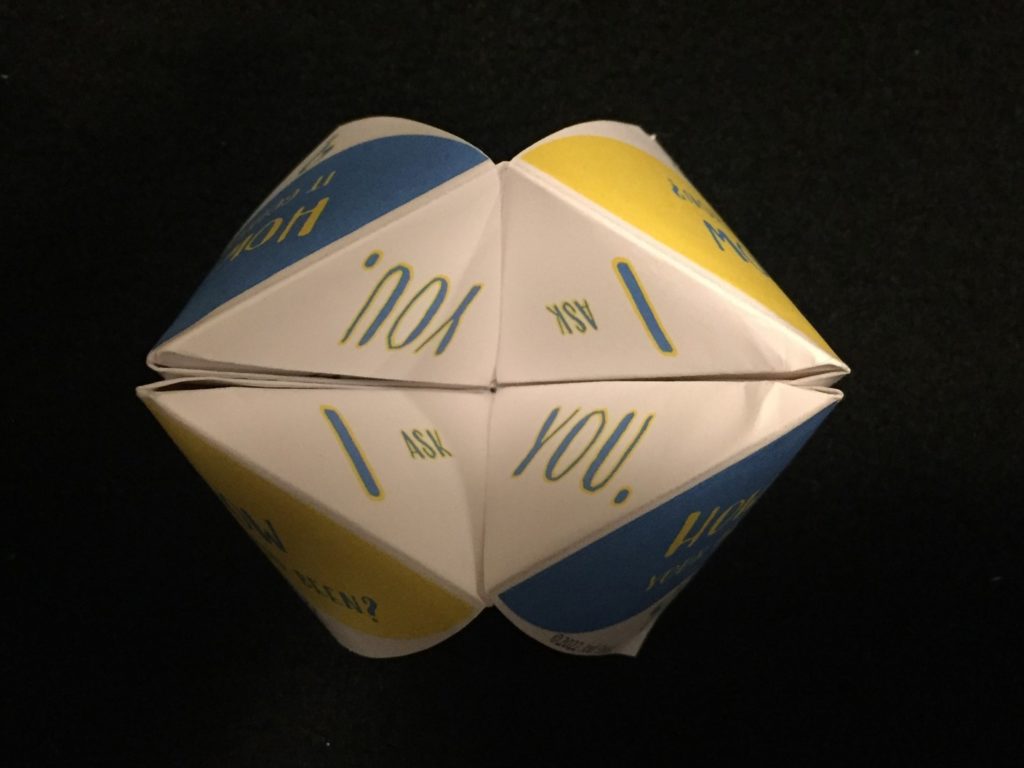
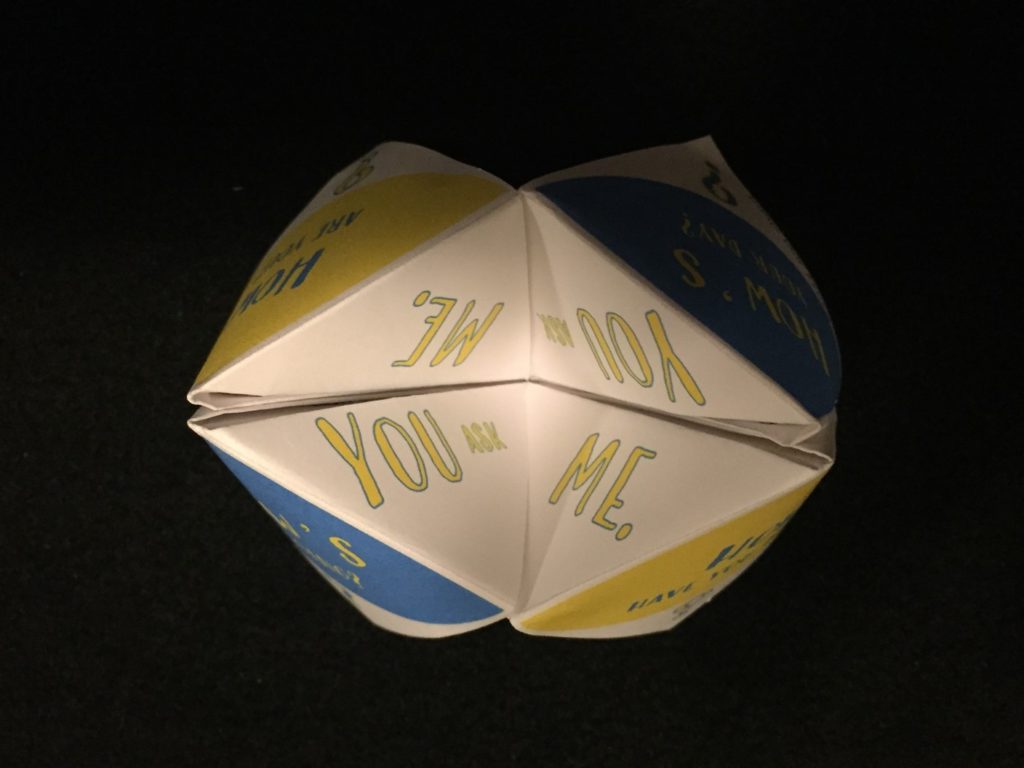
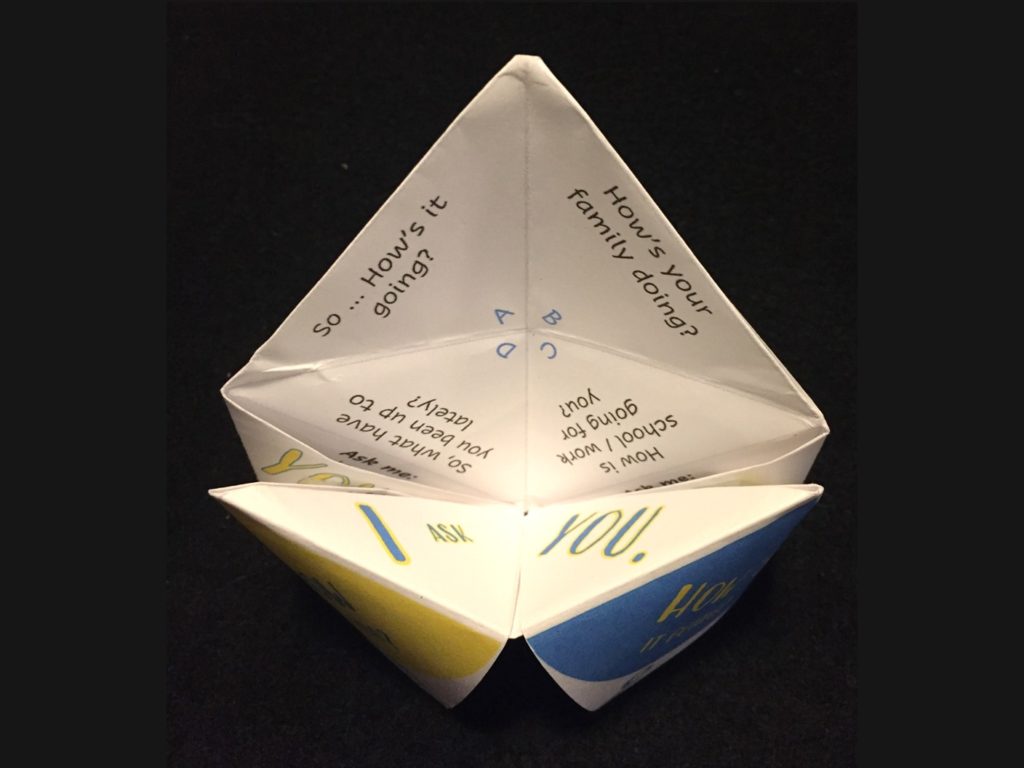
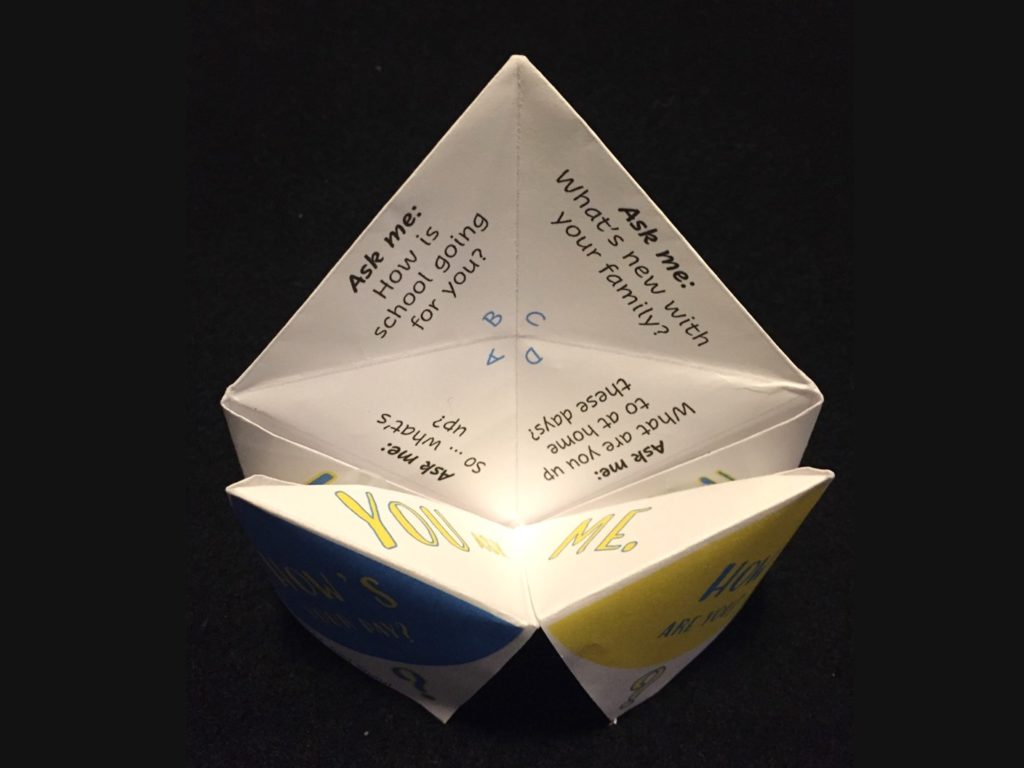
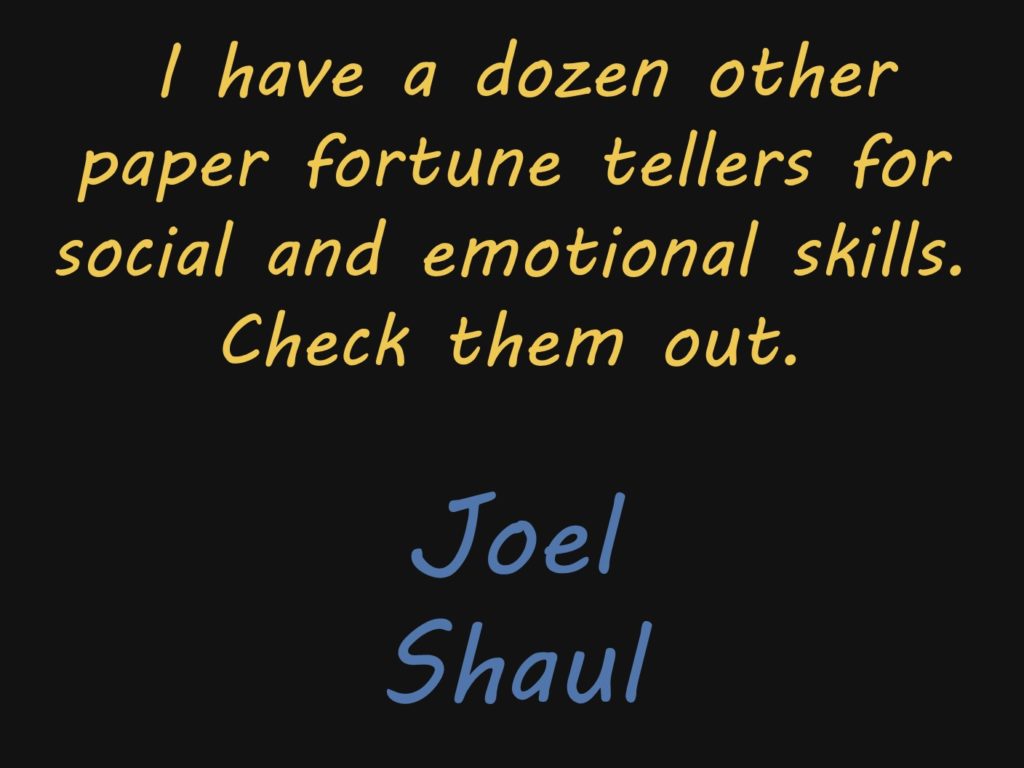
Don’t miss these other free worksheets, games, and teaching / therapy resources for children on the autism spectrum:
Free social skills games & activities, emotional regulation skills for kids with ASD
Free social skills games & activities, communication / conversation skills for kids with ASD
Free social skills games & activities, social interaction skills for kids with ASD
Your comments on these resources are most welcome, and often helpful. Click HERE to send an email.

